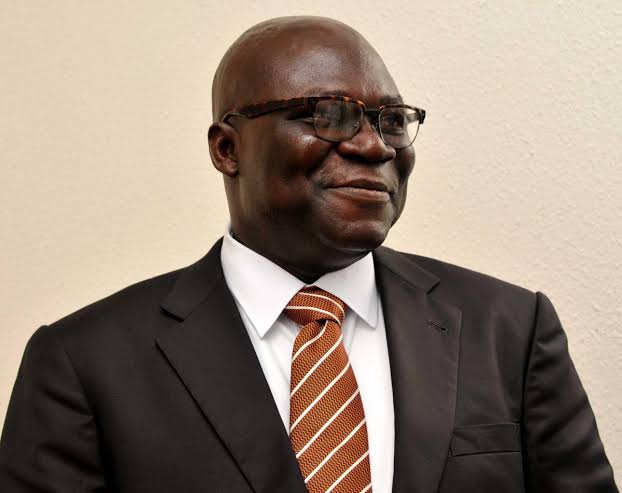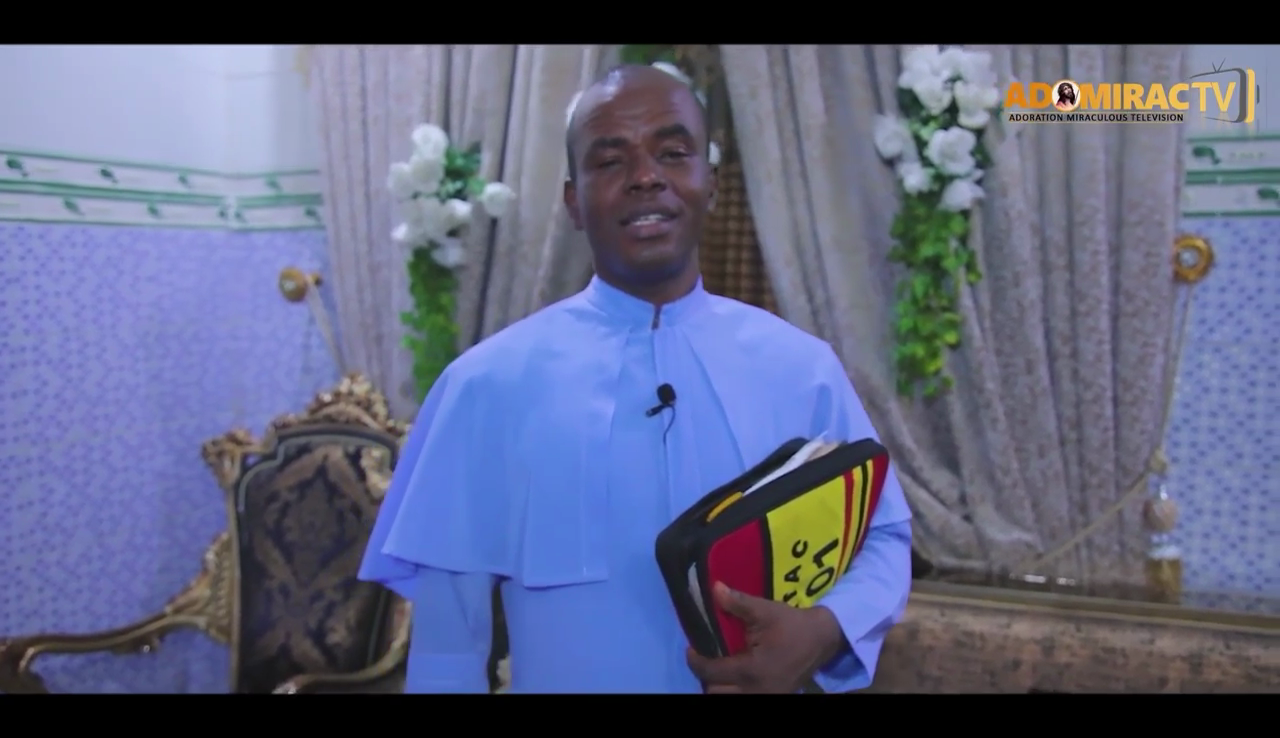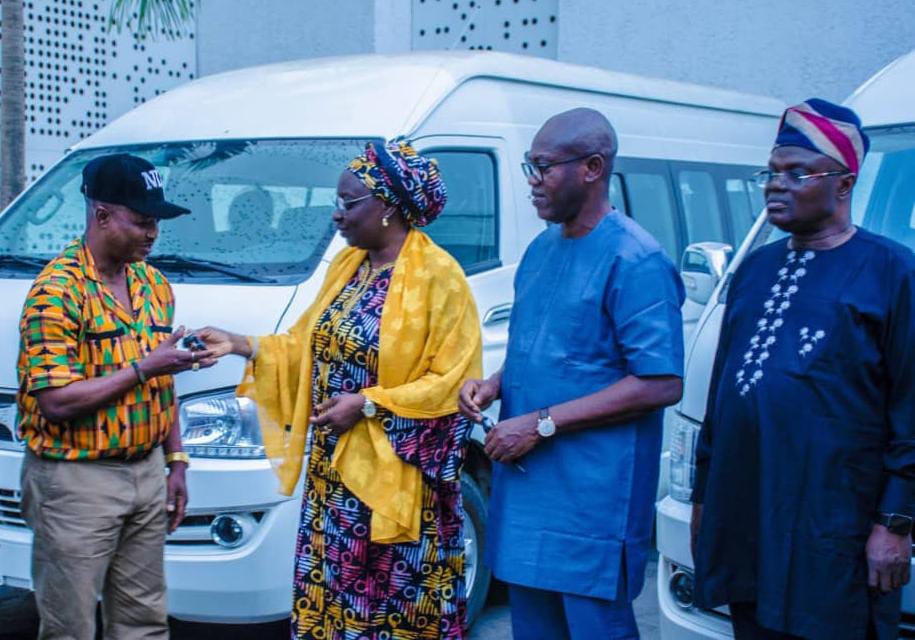“The cash scarcity matter has now even become so ridiculous that three Northern state governments are going to court – Kaduna, Kogi and Zamfara to seek an order to compel the Federal Government and the CBN to extend the deadline for the validity of the old N200, N500, and N1, 000 notes. The three states are all ruled by members of the All Progressives Congress (APC) in a further demonstration of how 18 days to Nigeria’s general elections, the ruling party is locked in intra-party wrangling. In the meantime, an Abuja High Court has barred the President and the CBN from suspending, stopping, or extending the new currency and cash limit policy. The motion ex parte which was filed by the Action Alliance (AA), Action Peoples Party (APP), Allied People’s Movement (APM), and the National Rescue Movement (NRM), against the President of Nigeria, the CBN, the Governor of the CBN and 23 others as respondents was determined in favour of the plaintiffs, and the matter adjourned to 14th February 2023. Thirteen political parties are also threatening to pull out of the election! Nigeria is being turned into a “Fuji House of Commotion.”
Yesterday morning, while on the flagship show of Arise News – The Morning Show- I took special notice during the newspaper review with Emmanuel Efeni and the segment titled “What’s Trending” with Ojy Okpe, of the editorial by the ThisDay newspaper of the day titled: “Interim Government: Perish The Thought”. I pointed out that having been Chairman of the Editorial Board of a major Nigerian newspaper for 11 years, before moving on to other engagements in the public sphere, I am aware that when a newspaper publishes its editorial on the front page, as ThisDay did yesterday, it amounts to screaming, an outcry, a shout out, a call for urgent attention and a signal that the subject being talked about is most important. Ordinarily, a newspaper’s opinion is planned for the editorial pages, but when it jumps to the front page, it means the newspaper’s board considers it a high priority issue. I argued that the newspaper acted rightly by putting this particular editorial in its window space. I also concurred with all the submissions by the newspaper. The purpose of this piece is to expand the subject further, and develop some of the points that may not have been fully fleshed out in a restricted editorial writing space.
ThisDay pegged its editorial on the declaration by Asiwaju Bola Ahmed Tinubu, Presidential candidate of the All Progressives Congress (APC), last week, in Ekiti, that there is a hidden plan to subvert the 2023 general elections so that an interim government can be imposed on Nigeria. The paper writes wisely: “Although Tinubu did not mention names or elaborate on how this scheme would work, coming from the candidate of the ruling party at the centre, such a weighty allegation is enough for us to warn against any attempt to scuttle the presidential election slated for February 25. Whatever may be behind an idea of interim government, we must remind them that in the Nigeria of today, nobody can get power through the back door or by trying to foist their will on the collective.” The newspaper argued further that (1) any attempt to short-circuit the electoral process is unacceptable; (2) that three weeks to the elections, the idea of forming an interim government is diversionary and dangerous; (3) that the idea is unknown to the 1999 Constitution and the military cannot be co-opted to support such illegality; (4) that there is no mortal threat to the 2023 general elections, where there are challenges, those challenges must be addressed by the state because it is its duty to do so by addressing the current twin challenges of cash and fuel scarcity and finally (5) the Federal Government must support the electoral umpire, INEC with logistics including security arrangements while the President is expected to stand firm and protect our democracy. The newspaper concludes: “Let all those interested in power use the platform of electoral politics and let’s all have faith in the in-built self-correcting capacity of the democratic order.” I cannot agree more. The editorial is timely and pungent enough. It is worthy of attention and further elaboration.
The idea of an Interim National Government was a contraption introduced into Nigeria’s grammar of politics and governance by the military administration led by General Ibrahim Babangida when in August 1993, having messed up the general elections of June 1993, Babangida decided to “step aside” (in retrospect, whatever that meant) and chose to hand over power to an interim government headed by Chief Ernest Adegunle Shonekan. The interim government lasted from 27 August 1993 when it was formed till 17 November 1993, less than 90 days when it was dissolved by General Sani Abacha who had been left behind by Babangida as Secretary of Defence, and who thought that becoming a Head of State of Nigeria was his turn, not Shonekan’s. This “Emilokan” thing did not start yesterday in Nigerian politics. Shonekan was a lawyer and a prominent technocrat who rose to the headship of the United African Company (UAC) in Nigeria. He was the product of a deal hatched with the British and other stakeholders. It all ended in tears. For the 88 days that the ING was in power, the country drifted. Strikes by union workers. High inflation. The media refused to co-operate. The South West media called the government – “fidihe” – in Yoruba language, this means sitting on a chair with one lap of the buttocks, in other words, not sitting properly.
Pro-democracy groups protested about the rot that Babangida left behind and called for a recognition of the mandate of the Nigerian people that had been won by Basorun MKO Abiola in the annulled June 12 Presidential election. A Lagos High Court in fact nullified Shonekan’s position and declared the ING illegal. On November 17, 1993, General Sani Abacha, Secretary of Defense, as he then was, forced Shonekan to resign. It was the shortest-lived government in Nigerian history. The Head of the ING could not put up any resistance. He had no control over the troops. He was a seasoned technocrat, a board room guru, who found himself in the uncharted waters of Nigeria’s power game, far more complex than what suit-wearing, overpaid executives do in air-conditioned board rooms. He didn’t need too much persuasion for him to drop a resignation letter and embark on a rapid dialogue with his legs. The ING collapsed. Abacha took over. What followed was absolute chaos and anarchy. Nigeria is yet to recover from the agony of Babangida’s folly and Abacha’s tyranny!
The idea of an Interim Government then was unconstitutional then as ruled by the court of Justice Dolapo Akinsanya of the High Court of Lagos who declared that the Decree No 61, that brought the ING into power was unconstitutional and therefore null and void. It was not only the Constitution that faulted the legitimacy of the ING, Shonekan’s appointment stood on nothing. He was an appointee. He did not gain power through a coup or an election. He is the only Nigerian leader at the centre, in history, who was not allowed to exercise the powers of a Commander-in-Chief of the Armed Forces. His exit from power was a major turning point in Nigeria’s century-old relation with the United African Company (UAC), formerly, the Royal Niger Company, a grand symbol of colonialism and imperialism.The sub-text of the editorial by this newspaper is that history should not be allowed to repeat itself. With the return to democracy since 1999, the kind of impunity with which the military junta treated the laws of the land should not be allowed. The soldiers may have left the scene, but their civilian successors and the soldiers now wearing flowing, bulbous civilian gowns, have the same mind-set: to do as they wish and subvert the people’s will. In 1993, it was said that General Olusegun Obasanjo, as he then was, was the person who recommended Shonekan, his kinsman for the position of the Head of the ING. It is also being said currently that the idea of an ING is being led by the same Obasanjo. He has a duty to clarify his position on the matter. I share the view that Nigeria does not need an ING. I also think nobody, male or female, should allow himself or herself to be used to subvert the current electoral process. The military thought they could get away with it in 1993, but they could not. They did not. This country does not belong to a cabal, or whatever name they go by – it belongs to all of us, and indeed ordinary Nigerians have a say in the matter. The sub-text of the editorial by ThisDay newspaper under reference is that any attempt to scuttle this year’s general elections in Nigeria would be an act of sabotage or treason. And nobody born of a woman, or not of a woman, who claims to be Nigerian should agree to be used as a dummy to mess up this 2023 election process.
To state the matter as it is, Nigerians have invested a lot in this process. They have queued up to get registered. They have spent weeks trying to get their Permanent Voter’s Cards, (PVCs) which is the only object recognized by the Bi-modal Voters Registration System (BVAS). The deadline for the issuance of PVCs by INEC ended over the weekend, but the desperation exercised in the face of the incompetence of INEC officials, and the protests by the people indicate that this would be an election like no other since 1999. This much was confirmed by a poll result by Nextier, a polling agency which apart from predicting a likely run-off, says there will be a high voter turn-out this year, contrary to suppositions to the contrary. Billions of Naira have been spent on logistics at national and sub-national levels. Political parties have crisscrossed the country wooing the electorate for votes, chalking up huge costs in the process. Some of the Presidential candidates even took their campaign to Chatham House in London to seek the endorsement of our former colonial masters. Some of the Presidential candidates and their acolytes even danced and almost broke a hip at campaign rallies across the country. Since the flag off of campaigns by INEC in October 2022, the country has witnessed a campaign different from whatever we witnessed before this seventh cycle of elections since 1999. It would be a tragic anti-climax for the government to wake up tomorrow and declare that there would be no election or that an Interim National Government had been formed. We must all be reminded that 1993 is not 2023. The military may have escaped with their folly, but this time around, the civilians in power must learn not to provoke the people.
Those who are pointing to fuel scarcity and the re-design of new naira notes as an excuse for the imposition of an interim government or potential mayhem, are engaged in deliberate mischief. They do not mean well for this country. President Muhammadu Buhari must see these calls as an attempt to ensure that his administration ends on a very bad note. General Babangida tried the same gambit in 1993. He has not recovered from the damage. President Buhari has promised Nigerians consistently, and that has been echoed by the INEC that the elections will hold as scheduled, and that chosen dates are sacrosanct. Anything to the contrary would amount to gross insincerity and dishonesty and a dark blotch on the Buhari tenure as Nigeria’s President. It is his choice to make but we also have a duty to point out that Nigeria must not be turned into a game of ping-pong. Those who do not want the 2023 general elections to take place are enemies of the people. The Buhari government has no option. This election must hold. Not even the lee-way offered in the Constitution is available in the circumstance.
Nigeria’s Constitution is very clear about the tenure of elected Presidents and Governors of Nigeria: its four years in the first instance and a second and final term of an additional four year-term. Any form of extension beyond this limit is a violation of the Constitutional order which elected persons swear to defend. In other words, the tenure of an administration cannot be extended by fiat, not even for a day. In that regard, the tenure of Buhari’s administration effectively ends on May 29, 2023. He cannot stay a day longer. He cannot leave an Interim Government behind. It is in his interest not to leave office as a civilian President who broke the law and left chaos behind. There is a possible outlet in Section 135 (3) of the 1999 Constitution which states that “If the Federation is at war in which the territory of Nigeria is physically involved and the President considers that it is not practicable to hold elections, the National Assembly may by resolution extend the period of four years mentioned in subsection (2) of this section from time to time, but no such extension shall exceed a period of six months at any one time.”
Section 135(3) or its relation, Section 180 (3) of the 1999 Constitution cannot be invoked under the present circumstances. Nigeria is not physically at war with any country either internally or externally. In fact, one of the selling points of this administration is that President Buhari has been able to checkmate the Boko Haram elements who tried to turn the North Eastern part of Nigeria into a battle-field. Any attempt to use that as an excuse would be an admission of failure. Can Buhari afford to dismantle his own legacy as he defines it in that regard? The only war that others point to is a war between the haves and the have nots: the classical war of the classes between those who cannot have access to new notes and fuel supply, and the vast minority who in the midst of all of this, are living like ants in the midst of honey. The aggrieved are beginning to take to the streets in parts of Nigeria, driving up fears in the country that there may well be a clandestine plan to blow up the country and stop the elections. But that does not amount to any justification to invoke Section 135 (3). If the people are angry over fuel supply, give them fuel – very simple. If there are no new notes – push more money into circulation, that is what the people want.
The cash scarcity matter has now even become so ridiculous that three Northern state governments are going to court – Kaduna, Kogi and Zamfara to seek an order to compel the Federal Government and the CBN to extend the deadline for the validity of the old N200, N500, and N1, 000 notes. The three states are all ruled by members of the All Progressives Congress (APC) in a further demonstration of how 18 days to Nigeria’s general elections, the ruling party is locked in intra-party wrangling. In the meantime, an Abuja High Court has barred the President and the CBN from suspending, stopping, or extending the new currency and cash limit policy. The motion ex parte which was filed by the Action Alliance (AA), Action Peoples Party (APP), Allied People’s Movement (APM), and the National Rescue Movement (NRM), against the President of Nigeria, the CBN, the Governor of the CBN and 23 others as respondents was determined in favour of the plaintiffs, and the matter adjourned to 14th February 2023. Thirteen political parties are also threatening to pull out of the election! Nigeria is being turned into a “Fuji House of Commotion.”
In case anyone is tone-deaf, President Muhammadu Buhari’s tenure ends on May 29, 2023. He must not spend a day longer in the Presidential Villa. He must not leave any surrogates behind, in the name of an interim government or any such contraption. The National Assembly of Nigeria must not lend itself to any form of mischief, cooked up by the enemies of Nigeria. The minimum that President Buhari is obliged to do is to leave this country as he met it – a civilian democracy, even if badly wounded.
Newspot









